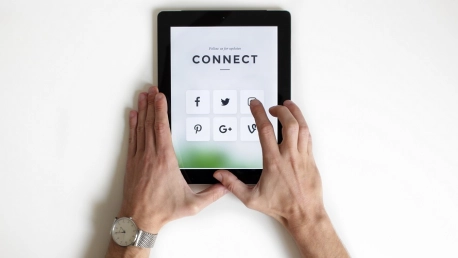There is no question about the fact that the last two and a half years have been erratic for people and companies around the world. The COVID-19 pandemic reshaped life and work patterns and disrupted the way people socialize, while Russia’s war in Ukraine prompted numerous companies to exit the Russian market. Although most people have returned to normal by now, remote and hybrid work remains important to US and foreign workers, along with many other effects of the pandemic. In fact, many of the changes caused by the pandemic will have lasting effects.
According to a recent Forrester study, as the healthcare crisis eased, hybrid work became normal and the differences between life and work became blurred. As people in the US and abroad started working from home, they found themselves performing tasks that used to be exclusive to the office, and they were able to devote some time to their personal lives—even during working hours. Although the healthcare crisis is almost over, it created fundamental changes—like the rise of the “Workday Consumer”, important changes in consumer behavior, and new digital marketing rules.
The Rise of the “Workday Consumer”
Forrester’s study shows that the new “Workday Consumer” moves between work, personal, and consumer tasks throughout the day, with 59% of participants saying that their work and personal responsibilities are equally important during their work time. This information is extremely valuable for managers, HR managers, marketers, and advertisers.
Equally important is the fact that 51% of the study’s respondents stated that they make more online purchases while working than they did before the healthcare crisis. Moreover, 62% of participants also admitted to researching or buying products and services online during work hours. Marketers should keep these numbers in mind when creating new campaigns, and opt for clean, direct content and strategies that are easier to understand while multitasking.
Important Changes in Consumer Behavior
While many marketers and advertisers collaborate with influencers and celebrities to promote their brands, new research shows that 85% of US consumers find influencers false or hard to connect with. Furthermore, the same percentage of respondents stated that they prefer to see content from real people who have real experiences with the product or service in question.
Even though user-generated content (UGC) is by no means new, marketers may be surprised to discover that as many as 84% of the people questioned said that they tend to put their trust in brands that put an emphasis on user-generated content. Moreover, 77% of respondents stated that they are more likely to buy a product or service from these brands—thereby demonstrating a clear preference for authentic content.
New Allies for Health and Well-Being
The pandemic not only changed people’s work habits, shopping patterns, and perceptions, but it also made them more aware of the importance of choosing the right products to maintain their health and well-being. According to the World Health Organization (WHO), digital technologies and online platforms can rapidly become allies for health. According to Tobin Ireland—the WHO’s Special Industry Adviser for the European Region—digital marketing is becoming increasingly more centralized, making it easier to manage paid content on more vertically-focused platforms.
Although digital marketing strategies are still used to promote unhealthy products, according to a new WHO report, today’s ecosystem opens a new window of opportunity to transform this 600-billion-dollar market. By making the right changes, digital marketing strategies could also become allies for health and well-being.
COVID-19 changed the way people live, work, and spend their free time—and some of these changes are here to stay. However, it’s important to note that the digital marketing ecosystem is also continuously evolving, and new trends are already reshaping the future. As customers adjust their schedules and behavior, and become more aware of the importance of health and well-being, marketers should adjust their strategies accordingly.









